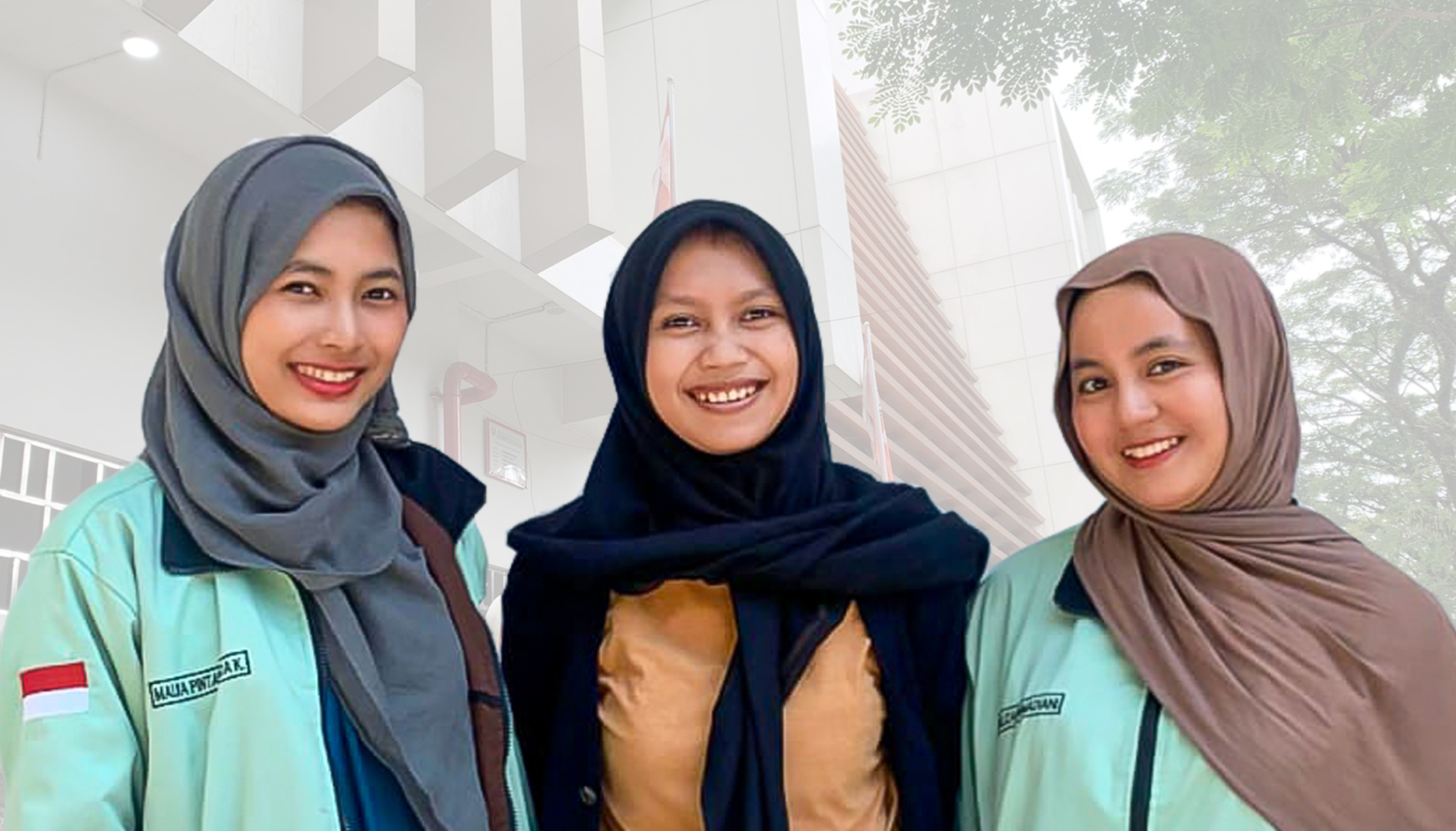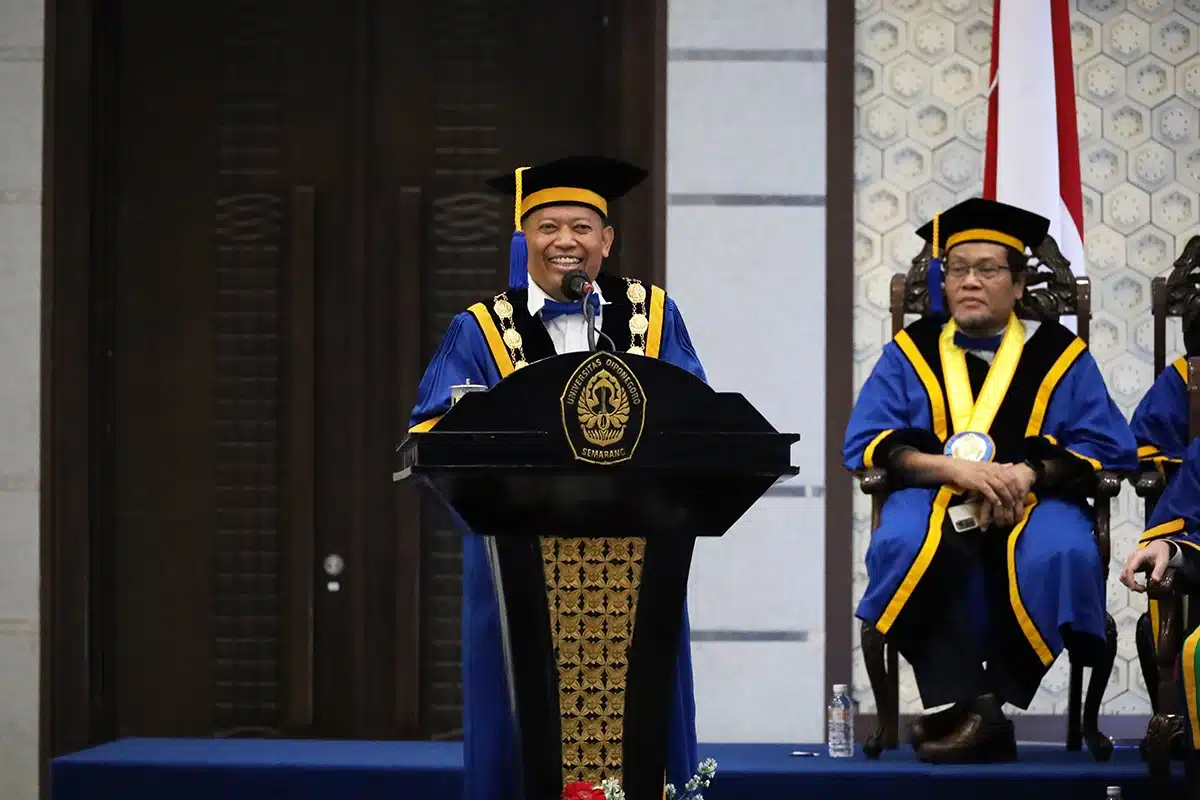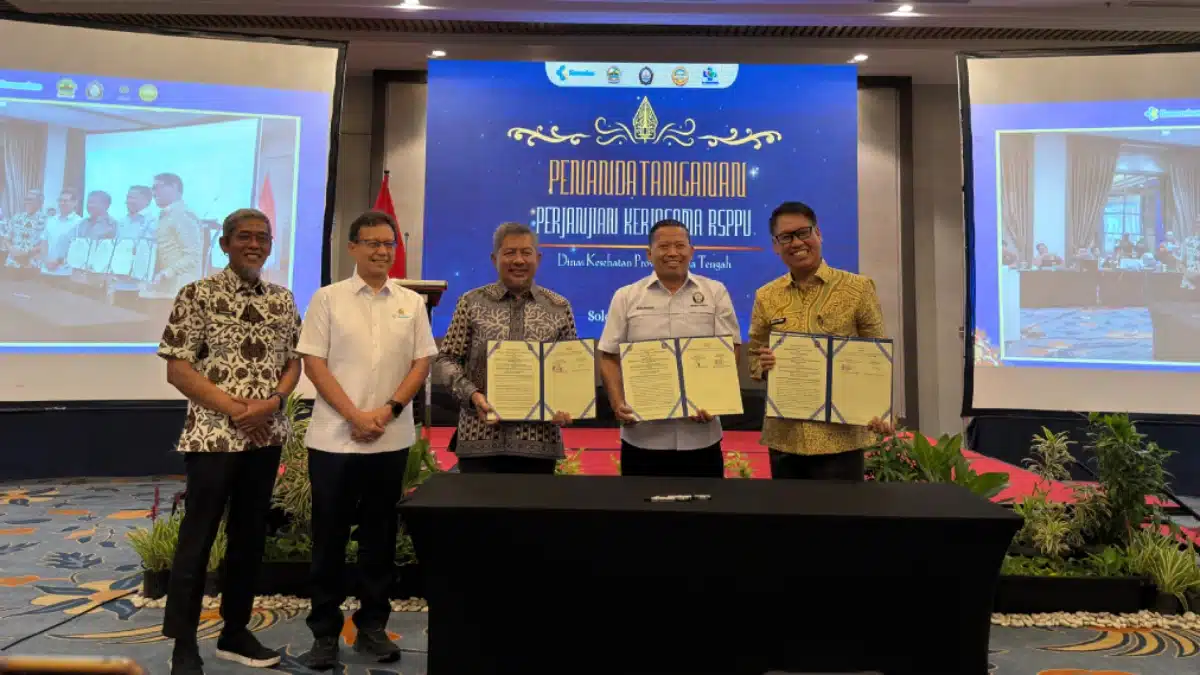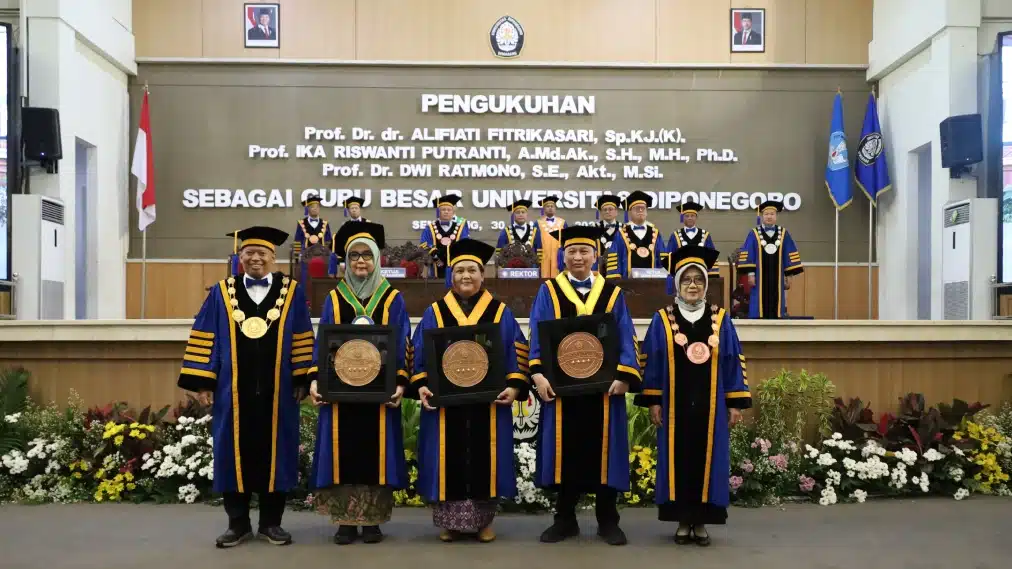Innovation continues to be a driving force in enhancing the efficiency and productivity of the agricultural sector. The latest breakthrough comes from the ICEDEEP Team (Smart Innovations for Agricultural Development), a group of millennial innovators from the Industrial Chemical Engineering Technology Program (TRKI) at Diponegoro University. Syaikha Butsaina Dhiya’ulhaq leads the ICEDEEP Team along with her colleagues Malika Pintanada Kaladinanty and Haliza Ramadiani.
Syaikha Butsaina Dhiya’ulhaq, commonly known as Syaikha, a student from the class of 2020, explained that the concept of developing the mina padi system involves the integration of a new layout and sensor technology. This invention promises a significant step forward in increasing rice production while considering environmental sustainability.
A vital component of this system is the use of an innovative pH sensor for ponds. This sensor is specifically designed to detect a drop in pH levels in the pond, which indicates an increase in nitrate levels due to duck feces used as fish feed, Syaikha explained.
Syaikha, who already holds 5 Intellectual Property Rights (IPRs) (Nos. EC00202318165, EC00202345464, EC00202347233, EC00202347234, EC00202345468), one international paper, and one media publication, revealed that when the pond’s pH drops below 5, the sensor signals the pump to channel water from the pond to the rice field’s water needs. The pH level not only helps maintain the pond’s environmental balance but also ensures optimal water supply for rice growth.
“Providing sufficient oxygen to the pond is an important aspect of fish farming. Dissolved oxygen is essential for respiration and is a key component of fish metabolism. As fish grow larger, the demand for oxygen in the water increases. The solution to supplying air to the pond is using a nano aerator powered by solar panels,” Syaikha explained.
Meanwhile, Malika Pintanada Kaladinanty, known as Malika, a student from the class of 2022 who holds 2 IPRs (Nos. EC002023127100, EC00202416211), stated that innovation does not stop there. The development concept also includes layout changes designed to increase land efficiency and appropriate water use. The layout modifications ensure the land is utilized more efficiently while water is allocated precisely, reducing waste and enhancing productivity.
“The innovative ideas from the ICEDEEP Team synergize three sectors into one innovation: agriculture, fisheries, and livestock. In more detail, the sensor integration concept is illustrated in the picture,” said Malika, who has been published in various national media.
Haliza Ramadiani, from the class of 2022 and commonly known as Haliza, added that one of the distinguishing advantages of this project is the use of solar panels to power the pumps and sensors. The use of solar panels not only makes the system more energy-independent but also considers sustainability by reducing reliance on conventional energy sources.
The role and support of the supervising lecturer, Mohamad Endy Yulianto, who is also the Head of the Industrial Chemical Engineering Technology Program (TRKI) at Diponegoro University, have been continuously motivating the ICEDEEP Team. Regular discussions and intensive guidance have led to the development and refinement of this sensor system.
This innovative idea can bring benefits and hope for a sustainable and productive agricultural future. This project is a real example of how technology and collaboration can produce solutions that have a positive impact on farmers, the environment, and society as a whole. “The ICEDEEP Team also thanks PT Pertamina Kilang Plaju International for funding the development of the prototype through the Social and Technology Innovation Project,” said Haliza.











